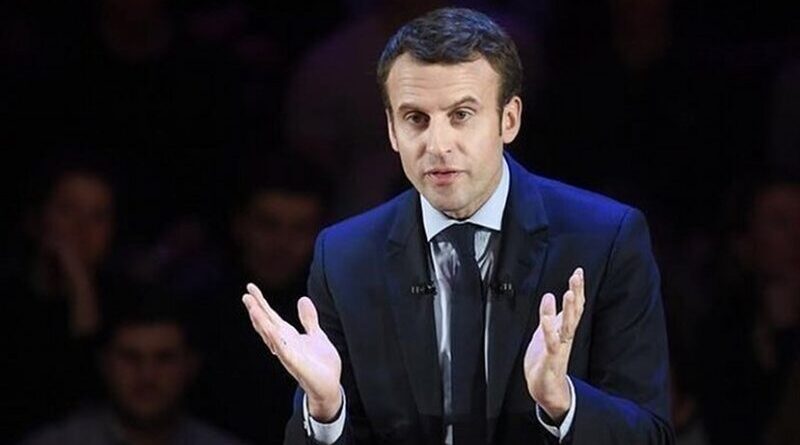Macron’s ‘Time-Bomb’ Remark Betrays Wider Anti-Muslim Prejudice – OpEd
The French president’s slandering of Bosnia is an extension of Macron’s own approach to his country’s Muslim minority.
By Darryl Li*
Last week, French president Emmanuel Macron prompted outrage in Bosnia and Herzegovina when he casually dismissed the whole country as a “ticking time-bomb” unfit for European Union membership.
Macron referenced “returning jihadists” from Syria, but Bosnia is no different from France and other EU states on this score, so the line seemed to needlessly single out one of the biggest Muslim-majority countries in Europe. The comment came off as little more than a high-brow version of Donald Trump’s infamous “shithole countries” remark.
Macron’s words, however, reflected a broader animus against Muslims with ramifications far beyond Bosnia and must also be squarely challenged.
The anger in Bosnia at Macron builds on years of frustration at how the West seems only to care about the country as a potential “jihadi hotbed.”
That concern stems from a notion that a country full of people who are both Muslim and white must be an oxymoron: Bosnian Muslims may seem like good Westerners but they could be secret fanatics, all the more dangerous because they confound racial profiling measures.
Blanket demonisation
Needless to say, Serb and Croat nationalists relentlessly invoked this theme during the 1992-1995 war, presenting themselves as defenders of Western civilisation against Islam.
Croatia’s current right-wing president has repeatedly made unfounded accusations about the alleged jihadist threat from Bosnia. Last spring, Bosnian authorities accused Croatian intelligence of a bizarre plot to vindicate those sensationalist claims by planting arms in a Bosnian mosque.
It is true that several hundred Bosnians have traveled to Syria since 2011, some of whom fought alongside ISIS and its rival opposition groups. Commentators often assume that this mobilisation stems from the history of Arabs who came to Bosnia for jihad during the 1990s and the thousand or so local adherents they attracted.
I have spent over a decade interviewing participants in that earlier jihad, both Arab and Bosnian, and following their progress in the years since. The overwhelming majority returned to civilian life after the war. Their views have evolved in vastly different ways, but all drew a clear distinction between joining an active combat zone abroad as an act of solidarity with fellow Muslims versus using violence at home – even the handful who supported the latter as also legitimate.
The blanket demonisation of former jihad participants is not only unfounded, but it also crowds out other important issues such as the need for mental health resources to deal with the traumas of war and the inability of those who become disillusioned with groups like ISIS to publicly share their experiences without fear of prosecution.
In the end, whatever harm has been caused by Bosnians returning from Syria pales in comparison to the environment of racialized suspicion and paranoia directed at Arab and African-origin Muslim populations in western Europe. Which brings us back to Macron: his cavalier slandering of Bosnia as nothing more than a threat betrays a similar attitude toward France’s own Muslim minority.
Trials outsourced to Iraq
While other countries have repatriated their citizens who allegedly joined ISIS and subjected them to a mix of prosecution, counseling, and monitoring, Macron’s government has steadfastly washed its hands of them – a stance that has earned plaudits from neo-fascists like Marine Le Pen.
Macron’s defence minister, Florence Parly, openly preferred that French Muslims be killed on the battlefield rather than return. As a result, France and other EU states have subcontracted the detention of their own citizens to Kurdish-led forces in eastern Syria, an irresponsible policy that is now in tatters thanks to Turkey’s invasion of the area.
With the Kurds suddenly too busy defending themselves to play proxy jailer, some EU states are hoping to dump their citizens on the Iraqi judicial system instead, where torture and summary trials are the norm and the death penalty is in use.
Unsurprisingly, Iraq has been less than enthusiastic about prosecuting these foreign nationals, especially those accused of committing crimes in another country, only to be criticised for violating their human rights.
Last month, Macron’s foreign minister, Jean-Yves Le Drian, traveled to Baghdad pushing plans to handle these cases through a special legal process that would notionally adhere to EU human rights standards, with Western states likely footing the bill. In other words, France may end up paying millions of Euros to prosecute its own Muslim citizens abroad for crimes that allegedly took place in a third country, all just to keep them from standing trial at home.
From the Balkans to the Middle East, European policies are animated by an anti-Muslim racism shared with more uncouth leaders like the current occupant of the White House. And Bosnia is more than a victim here, it is also a conscript.
Over the past decade, Brussels has pushed Sarajevo to implement a raft of repressive border security measures to keep migrants out of Europe.
At this moment, there are a thousand men from the Middle East and South Asia in a makeshift camp in northwest Bosnia just kilometers from the EU border sleeping in what will soon be subzero temperatures. The local authorities have threatened to cut off basic services and humanitarian aid. If such callousness can’t convince Macron that Bosnians can be good Europeans too, then it’s not clear what else will.
*Darryl Li teaches anthropology and law at the University of Chicago and is author of The Universal Enemy: Jihad, Empire, and the Challenge of Solidarity (Stanford University Press).
The opinions expressed are those of the authors and do not necessarily reflect those of BIRN.

